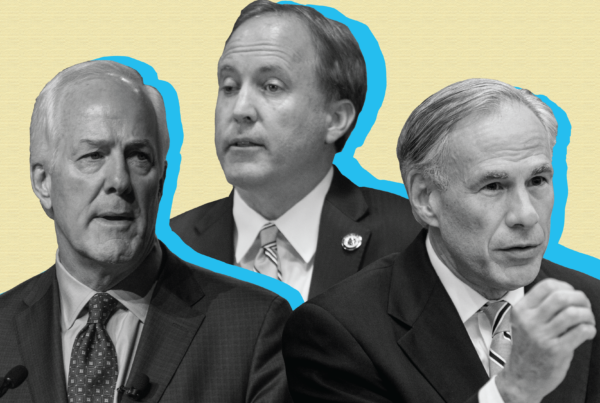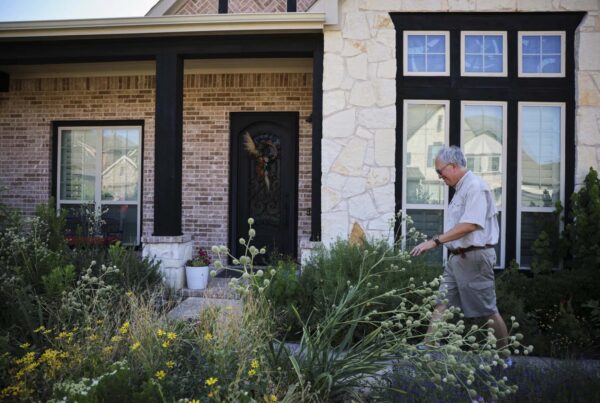The modern workplace has changed quite a bit, but the era of on-the-spot firings and bosses who yell to get things done may not be completely over just yet.
There is still an open question for many in the modern workplace: How do you get this stuff you want without getting dinged?
Rachel Feintzeig is a Work & Life columnist at the Wall Street Journal who just wrote about how to get ahead in the workplace. She joined Texas Standard to talk about how people can navigate the workplace. Listen to the interview above or read the transcript below.
This transcript has been edited lightly for clarity:
Texas Standard: You mention in your story that most modern office workers aren’t dealing with outwardly aggressive bosses or colleagues who might, you know, make scenes in the middle of the open office. That said, what do you believe are most people’s relationship with their bosses and colleagues?
I mean, I still think we see tension.
We see multi-generational tension in the office a lot these days. We have people working longer and younger generations coming in. And then and then there’s this idea of how forward and clear people should be.
I think this move toward vulnerability in the office and toward being nice and away from being jerky can leave some people confused as to how to make sure they’re walking that line and still moving their career forward.
Well, the title of your piece really gets at that, right? “Don’t Be a Jerk at Work (But Don’t Be Too Nice, Either.)” How do everyday workers strike that balance?
I think some of it is about the way that we speak, thinking about the language that we use, making sure that we’re not overusing hedging language all the time, such as, you know, “I think maybe we could try this idea.” Keeping your voice strong, not seeming like you’re asking questions all the time.
That being said, I don’t think we need to be jerks. I think we can be ourselves. I think we can be nice, warm and friendly. I think it’s just a matter of not devolving into people-pleasing all the time.
Not devolving into people-pleasing like what? I mean, people have different lines on people-pleasing. Some people say “you say ‘sorry’ too much,” right? Which is sometimes interpreted as an attempt to people-please. Where do you draw the line?
It’s a really good question. And I kind of think of it both ways.
I mean, in one sense, using things like apologies, exclamation marks… Sometimes they help us get ahead, especially at the start of our career. It can make people in power feel like they have authority. It can make people feel good. People feel less threatened.
But I think as we start to climb in our career, it can just become confusing to folks. And so there are moments where if you’re pitching an idea, if you have to stand up for your team and defend them to another group, where I think it’s important to kind of take a stronger approach.
You include some guidelines for bosses and decision-makers, like less yelling, more intensity. Can you say more about what that means?
Yeah, of course.
That came from Harry M. Kraemer, who’s a professor at Northwestern, and he was the CEO of Baxter Health Care. And he talked about how he tried a few things when he was a younger manager.
First, he tried just kind of being everyone’s breezy friend and not, you know, holding people to deadlines and just kind of shrugging his shoulders when his team blew him off. And that didn’t work.
Then he tried just devolving into yelling and that also didn’t work. He felt like people just saw him as out of control when he was just overly aggressive and yelled.
What he found was the right balance to strike was being really clear about his expectations from the start and then following through with consequences that if people didn’t hit deadlines or numbers that they said they were going to hit, he would gather them for long meetings where he wouldn’t yell, but his voice would be intense. He wouldn’t be smiling, and it would be very clear that he was not pleased.
How have people’s workplace relationships changed since the pandemic and are we seeing any of those workplace dynamics reemerge as people head back into the office?
That’s a good question. I think that we’ve seen things get a little bit more transactional.
I’m a proponent of remote work, and yet I think when you’re just interacting with people over a computer screen, it can take away some of that almost lubrication that we had for relationships where when you were in-person with them.
I think that continues with hybrid schedules. We see a lot of people coming back a few days a week, but schedules are more flexible, which I think is a good thing, but I think can make relationships just not kind of have that backbone that they once had of closeness and trust.













